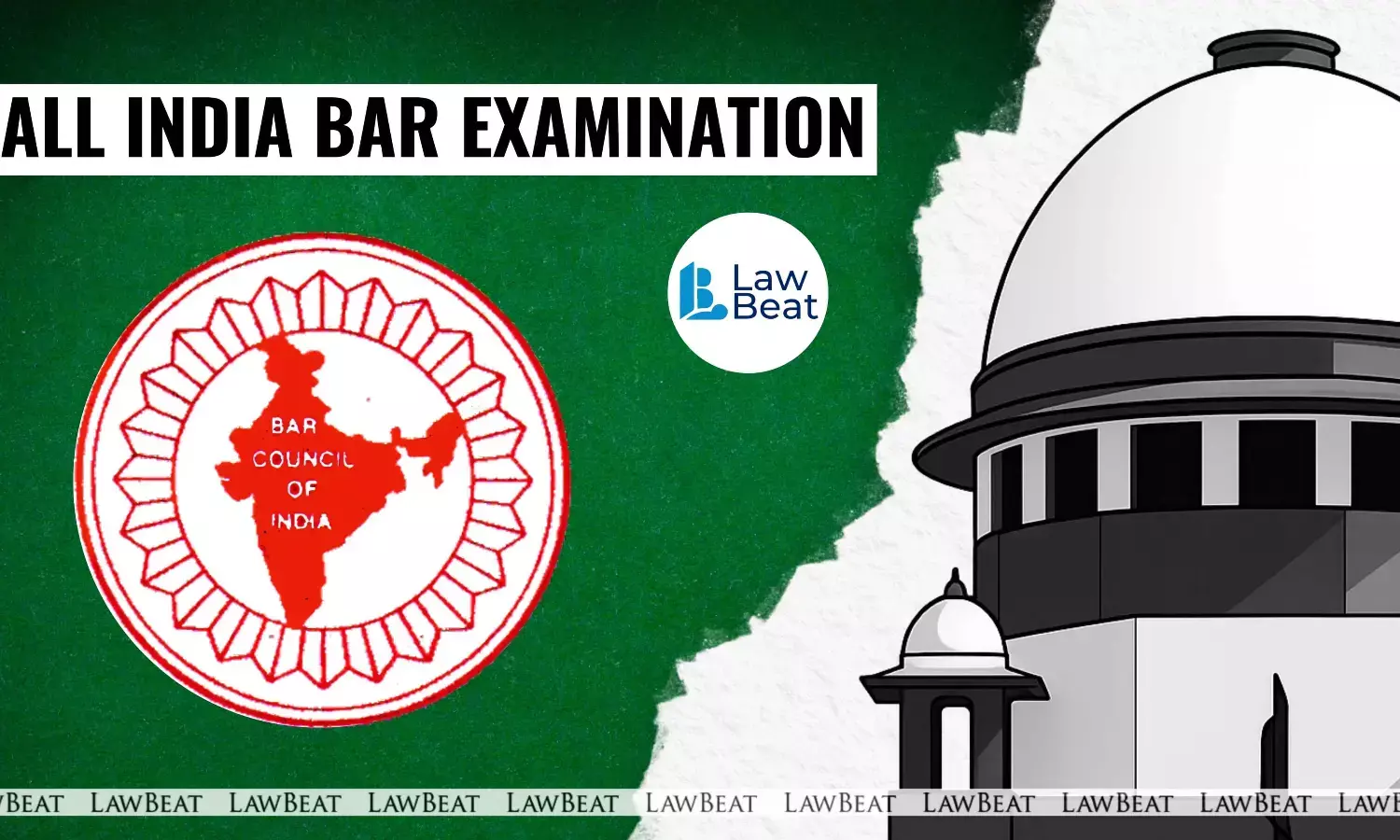Supreme Court Issues Notice On PIL Challenging ₹3,500 AIBE Fee After BCI Fails To Respond To Representation

The Supreme Court on Monday issued notice on a Public Interest Litigation challenging the fee structure and incidental charges imposed by the Bar Council of India (BCI) for the All India Bar Examination (AIBE).
The Bench of Justice J.B. Pardiwala and Justice R. Mahadevan sought a response from the BCI on the plea, which contends that the fee of Rs. 3,500 charged for the exam is arbitrary and violates the principles laid down by the Court in Gaurav Kumar v. Union of India.
This is the second time, the petitioner has approached the Supreme Court.
Notably, in February, the Court had asked the petitioner to first approach the BCI.
Today, noting that a representation was made but received no response, the Court issued notice in the PIL.
Previously
On February 24, the Supreme Court had declined to entertain a Public Interest Litigation (PIL) challenging the Rs. 3,500 fee charged for the All India Bar Examination (AIBE), observing that further curtailing the financial autonomy of bar councils could hamper their functioning.
The petitioner argued that the Bar Council of India (BCI), by levying such a fee, was acting beyond the scope of its powers under the Advocates Act.
However, the Court appeared unconvinced at this stage and remarked on the practical necessity of bar councils having adequate resources. “You want the bar councils to survive or not? We have already chopped off the upper and lower limbs. They also have staff to pay. Once you pay ₹3,500, you will start earning Rs. 3,50,000 also,” Justice Pardiwala had observed earlier.
The Bench had referred to its July 2024 judgment in Gaurav Kumar, where the Court had capped enrolment fees charged by State Bar Councils and the BCI, ruling that such fees could not exceed the limits set under the Advocates Act.
However, the Court had clarified that the present plea challenging the AIBE fee was a separate matter and not directly governed by that decision.
The petitioner’s counsel had submitted that the issue concerned the fundamental rights of aspiring lawyers, but the Court questioned why the matter had not been raised before the High Court in the first instance. Nevertheless, taking a lenient view, the Court permitted Gandhi to withdraw his petition and make a representation to the BCI.
“We are of the view that the petitioner should highlight to the BCI that this charge is contrary to the judgment rendered by this Court. The petitioner can file a representation in this regard and wait for a response within a reasonable time. He may approach this Court even if there is a negative reply from the BCI,” the Bench had said.
